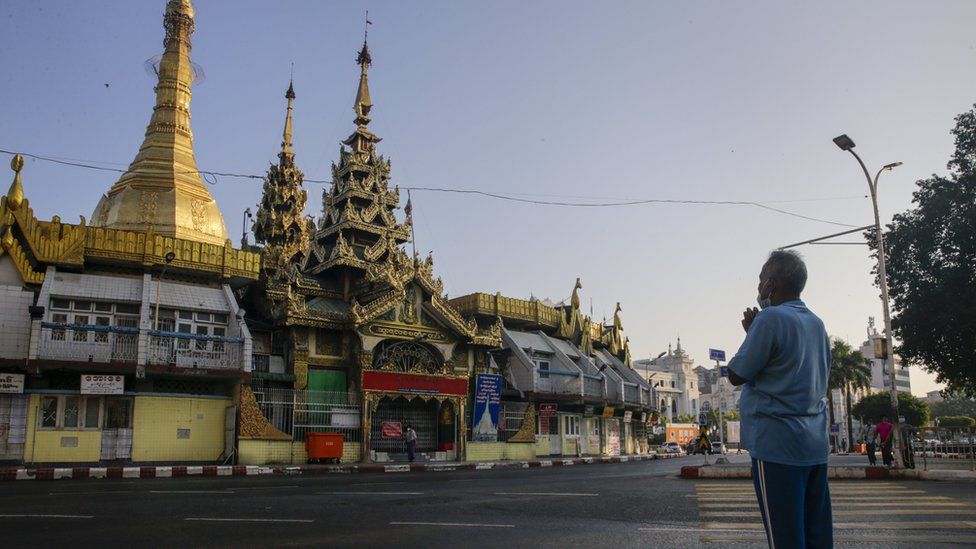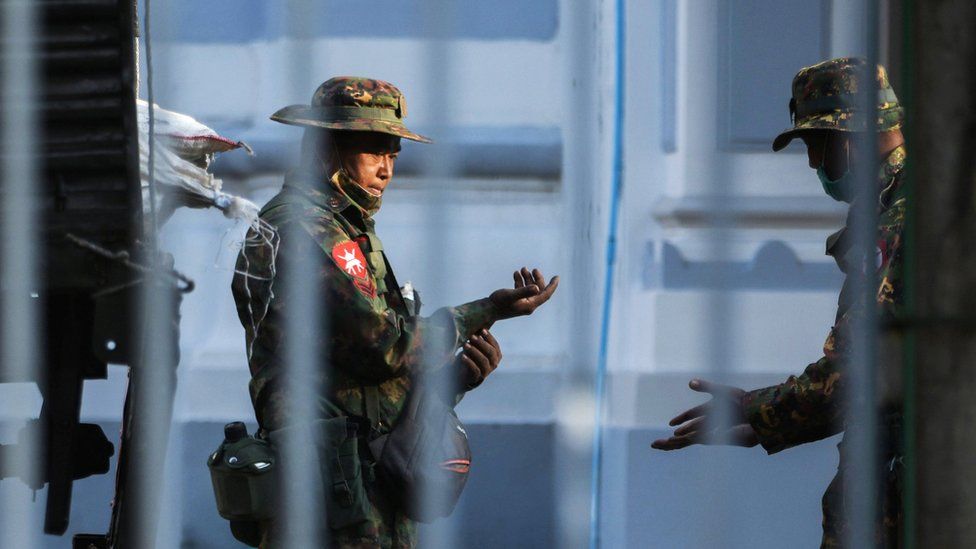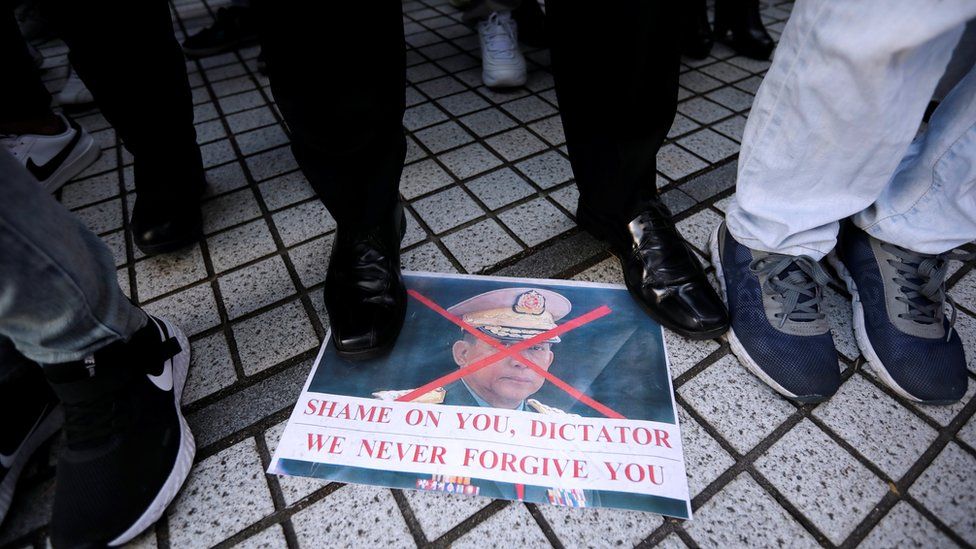Myanmar's coup: Why now - and what's next?
 image copyrightEPA
image copyrightEPAMyanmar's military has announced it has taken control of the country, a decade after agreeing to hand power to a civilian government.
The coup has sent a shudder of fear through the country, which endured almost 50 years of rule under oppressive military regimes before the move towards democratic rule in 2011. The early morning arrests of Aung San Suu Kyi and other politicians were all too reminiscent of days many hoped they had left behind.
For the past five years, Suu Kyi and her once-banned National League for Democracy (NLD) party led the country after being elected in 2015 in the freest and fairest vote seen in 25 years. On Monday morning, the party should have begun its second term in office.
But behind the scenes, the military has kept a relatively tight grip on Myanmar (also known as Burma), thanks to a constitution which guarantees it a quarter of all seats in parliament and control of the country's most powerful ministries.
Which raises the question why did it seize power now - and more to the point, what happens next?
'Trumpian' fraud allegations
The exact timing is easily explained, as the BBC's South East Asia correspondent Jonathan Head points out: Monday morning should have been the first session of parliament, which in turn would have enshrined the result. This now won't happen.
Elections in November saw the NLD win more than 80% of the vote, remaining hugely popular even in the face of allegations of genocide against the country's Rohingya Muslims.
The military-backed opposition immediately began making accusations of fraud after the vote. The allegation was repeated in a signed statement released by the newly-instated acting president to justify the imposition of the year-long state of emergency.
"The UEC [election commission] failed to solve huge voter list irregularities in the multi-party general election which was held on 8 November 2020," Myint Swe, a former general who had been vice-president, said.
 image copyrightReuters
image copyrightReutersBut there has been little evidence to support the allegation.
"Obviously Aung San Suu Kyi won a resounding election victory," Phil Robertson, deputy director of Human Rights Watch (HRW) in Asia, tells the BBC. "There have been allegations of electoral fraud. It is somewhat Trumpian - all these allegations of fraud with no evidence."
Even so, Mr Robertson describes the takeover as "inexplicable".
"Did [the vote] mean a loss of power? The answer is no."
Embarrassing the 'Father of the nation'
November's vote may have seen the military-backed Union Solidarity and Development Party (USDP) win a fraction of the vote, but the military still holds massive sway over the government thanks to a controversial 2008 constitution drawn up during junta rule.
It not only gives the military a quarter of parliamentary seats automatically, but also hands it control of three key ministries - home affairs, defence and border affairs.
So, as long as the constitution remains the same, the military retains some control. But could the NLD, with its majority, have amended the constitution?
Unlikely, says Jonathan Head, as that requires the support of 75% of the parliament - an almost impossible task when the military controls at least 25%.
 image copyrightReuters
image copyrightReutersAye Min Thant, a former journalist and tech educator, suggests there may be another reason for today's action: embarrassment on the part of the military.
"They weren't expecting to lose," she tells the BBC from Yangon (Rangoon). "People whose families were in the military must have voted against them."
Of course, it is far more than that.
"You need to understand how the army views its position in the country," Aye Min Thant adds. "International media are quite used to referring to Aung San Suu Kyi as 'mother'. The army considers itself the 'father' of the nation."
As a result, it feels a sense of "obligation and entitlement" when it comes to ruling - and in recent years, as the country has become more open to international trade, it has not liked what it has seen.
"They view outsiders especially as a danger."
The pandemic and international concerns over the Rohingya being disenfranchised in the November vote may have emboldened the military to act now, Aye Min Thant suggests. All the same, it still took her by surprise.
What does the future hold?
Indeed, experts appear unsure of exactly why the military acted now, as there seems little to gain.
"It is worth remembering that the current system is tremendously beneficial for the army: it has complete command autonomy, sizeable international investment in its commercial interests and political cover from civilians for war crimes," Gerard McCarthy, a postdoctoral fellow at the National University of Singapore's Asia Research Institute, tells the BBC.
"Seizing power for a year as it has announced will isolate non-Chinese international partners, harm the military's commercial interests and provoke escalating resistance from millions of people who placed Suu Kyi and the NLD in power for in another term of government."
Perhaps, he says, they hope to improve the USDP's standings in future elections, but the risks of such a move "are significant".
HRW's Phil Robertson points out the move puts Myanmar in danger of becoming a "pariah state" once more, while angering the people at home.
"I do not think the people of Myanmar are going to take this lying down," he adds. "They do not want to head back to a military future. They see Suu Kyi as a bulwark against a return to military power."
There are still hopes that this can be resolved through negotiation, he says, but adds: "If we start seeing major protests beginning, then we are into a major crisis."



No comments